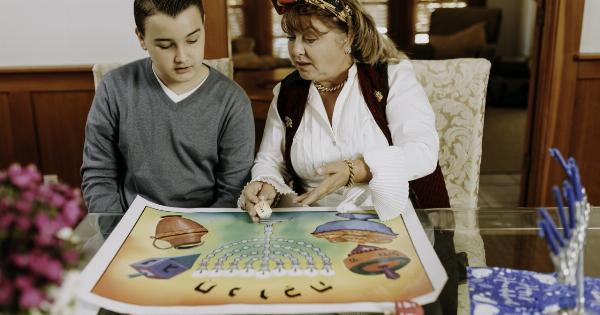Fairy tales have been enchanting young minds for centuries, sparking imagination and guiding children through a world of wonder. These timeless stories are not merely a form of entertainment; they play a vital role in a child’s development.
From enhancing literacy skills to nurturing emotional intelligence, fairy tales have a magical effect on children’s overall growth and well-being. Let us explore the incredible benefits of fairy tales in child development.
1. Language and Literacy Skills
Fairy tales are rich in vocabulary, offering children exposure to new words, phrases, and expressions. Listening to these tales helps enhance language acquisition as children actively engage with the story’s characters and plot.
As they navigate through the magical realms of fairy tales, they develop storytelling abilities, expand their vocabulary, and improve their overall communication skills.
2. Imagination and Creativity
Fairy tales cultivate imagination and creativity in children. These stories transport young minds to enchanting worlds, populated by talking animals, brave knights, and wicked witches.
By encouraging children to envision these vivid settings and characters, fairy tales ignite their creative thinking and problem-solving skills. As they imbibe the essence of storytelling, children are inspired to create their own tales, developing their unique voice and honing their imaginative capabilities.
3. Moral and Ethical Understanding
Fairy tales are brimming with important life lessons and moral values. Through fantastical scenarios and characters facing moral dilemmas, children learn about concepts like honesty, courage, and the consequences of their actions.
Fairy tales often feature archetypal characters, such as the hero and the villain, teaching children to differentiate between right and wrong. These timeless tales provide children with a foundation for developing their sense of ethics and morality.
4. Emotional Intelligence
Fairy tales help children navigate complex emotions and foster emotional intelligence.
As children engage with the trials and tribulations of characters in fairy tales, they learn to identify and understand various emotions such as fear, sadness, joy, and love. Fairy tales provide an avenue for children to process their own emotions and learn empathy, as they empathize with the plights of characters.
These stories offer a safe space for children to explore and make sense of their own feelings, enhancing their emotional intelligence.
5. Cultural Understanding
Fairy tales originate from various cultures around the world, giving children a glimpse into different traditions and beliefs.
As children explore these multicultural narratives, they develop an appreciation for diversity and gain cultural understanding. Fairy tales contribute to breaking down stereotypes and promoting inclusivity by showcasing characters and settings from different backgrounds. This exposure fosters open-mindedness and cultivates a sense of global citizenship in children.
6. Resilience and Problem-Solving
Fairy tales often present characters with seemingly insurmountable obstacles, challenging young readers to consider creative solutions.
By witnessing these characters face adversity and overcome challenges, children learn about resilience, determination, and problem-solving. Fairy tales teach children that setbacks are not the end of the story, but rather an opportunity for growth and learning. These narratives empower children to tackle real-life problems with resilience and resourcefulness.
7. Cognitive Development
Engaging with the magical world of fairy tales stimulates cognitive development in children. These stories introduce young minds to complex plotlines, intricate characters, and imaginative settings.
As children try to predict the outcome, remember details, and connect various story elements, their cognitive abilities, such as memory, comprehension, and critical thinking, are sharpened. Fairy tales provide an immersive experience that fosters cognitive growth and nurtures intellectual curiosity.
8. Social and Emotional Development
Fairy tales play a crucial role in social and emotional development by providing children with relatable situations and characters. Through these stories, children learn about friendships, families, and the dynamics of human relationships.
They perceive different character traits, emotions, and behaviors, enabling them to develop empathy, social skills, and an understanding of their place in the world. Fairy tales serve as mirrors for children, reflecting their own experiences and guiding them through the complex realm of emotions.
9. Building Moral Judgment
As children engage with the moral dilemmas and predicaments encountered in fairy tales, they begin to shape their own moral judgment.
These stories often confront young readers with ethical choices, exploring themes of justice, sacrifice, and the struggle between good and evil. Fairy tales encourage children to critically analyze the characters’ decisions and develop their own sense of right and wrong. These experiences lay the foundation for the development of a strong moral compass.
10. Bonding and Quality Time
Reading fairy tales together creates an opportunity for quality bonding time between parents and children. Sharing these stories promotes a sense of security, love, and connection.
As parents delve into the magical realms alongside their children, they embark on a shared adventure, fostering parent-child relationships and building memories. The enchanting world of fairy tales strengthens the familial bond and provides a platform for open communication and emotional support.
Fairy tales have an undeniable allure that captivates young minds and sparks their imagination. Beyond their enchanting narratives, these timeless stories hold incredible power to shape and influence a child’s development.
From fostering imagination and creativity to enhancing language skills and emotional intelligence, fairy tales offer a treasure trove of benefits for children. So, pick up a book of fairy tales and embark on a wondrous journey with your child!.






























